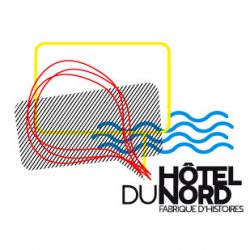The question arose to welcome guests in northern Hotel, who would like to join us and whose habitats are located in other arrondissements of Marseille, but also in towns of the Lake of Leo and the area of Fos. This forces us to think about the geographical boundaries in which North Hotel fits. It also forces us to reflect on the necessary development of our activities to achieve a minimum balance that allows the economic survival of our co-op – and hopefully its self-development. Of course, the two aspects are linked, but they also have to respond to a genuine need and coherence that gives them meaning. The North hotel is anchored in the reality of the northern districts of Marseille. It is the product of a clean history that has long enrolled in the fifteenth and sixteenth arrondissements. This makes two territories which only partially overlap and which must be distinguished: the territory which has received the birth of an experiment and which is also defined within its institutional limits, and the territory which bears the spirit and the reason of this experience and which does not stop at administrative cuttings. It is these two territories that Northern Hotel Bears in its name, and which it must know to reinvent the relations both imaginary and geographical. What carries the Northern Hotel co-operators is a certain way of seizing the reality of the places and the tensions that work on them to feed interlaced projects where common values are articulated: The meeting, the reception and the hospitality, the Willingness to value territories beyond the clichés that overwhelm them, the idea that history lives only in the present creation, the belief that the economy can reinvent itself in the relationship to culture. And what characterizes these places and their tensions is the economic and political process that created Marseille's destiny by dividing the city profoundly, by opposing the north and the south, by denying the richness of its popular heritage, by creating areas of Social segregation, by making oblivion and contempt a weapon of moral destruction that presides over the reproduction of forms of morbid power, unable to think about the future. Of course, the North Hotel is certainly not in itself an answer to this process, but it finds its backdrop and it draws in the need to resist its first energy. So what we call the northern districts is not just a perimeter or a territory of belonging, but a certain point of view. This point of view is both the one from which they are viewed and the one they offer us as a place of a glance at the world. In a way, North Hotel is proposing to work these viewpoints and the way they intersect. It would also be a curiously simplifying idea to think that the northern districts are a territory. They cover an incredible wealth of different territories. And this diversity of territories, of populations, of stories and of traditions, of languages also, is recognized in a space certainly very concrete, but always redesigned, always reinvented. There is, towards Corbières, a port structure of pleasure craft which asserts itself as a port of Marseille West. It is obviously a local way to avoid being in the north, it is a way of practicing a geography of denial. We have to practice a geography of the claim. That there are initiatives on the thirteenth and fourteenth arrondissements, it seems to me to be absolutely natural. In the logic of cross-points of view, I do not really see what distinguishes them from our quarters, even if the remoteness of the sea makes them cinematically less photogenic. The towns of the lake of Leo ask us a much more interesting question. They speak to us in short of the history of our neighbourhoods, between the extension of the urban fabric and the movement of industrial activities towards wider spaces, more open, more easily articulated on the maritime facade – the north. They also tell us about the contribution of immigrant populations, the cross between agricultural heritage and land-eating enterprises, between villages and cities, new towns and the restarted forms of the social crisis. They are different from us and they are us at the same time, our extensions, our expansions, our humble and poor Americas. They are our north and they are part of our north. We share the same story and the same present, because our respective territories have formed the same logic. That is why it seems necessary for me to continue and to deploy the North Hotel activity. Jean Cristofol, Associate North Hotel, November 2012.

